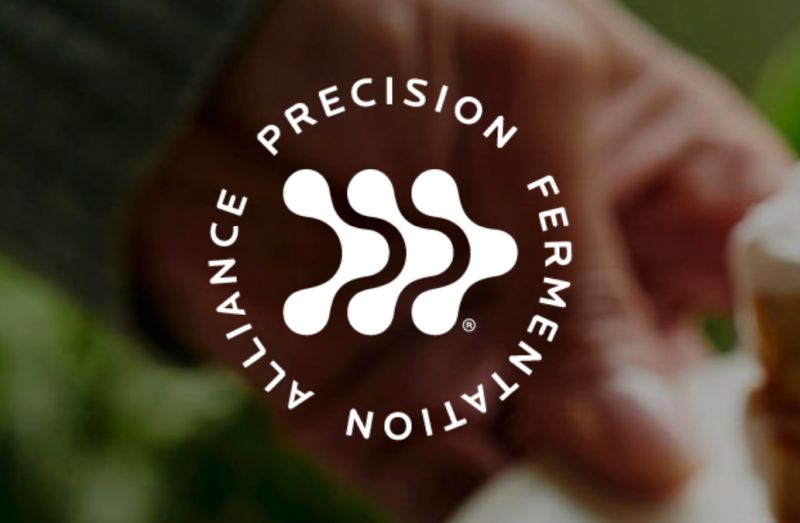Nine foodtech startups—from animal-free dairy companies to firms making meaty flavors for meat alternatives—have joined forces to create a new trade association: the Precision Fermentation Alliance.
Precision fermentation uses microbes such as yeast, fungi, bacteria, and algae that have been genetically engineered to produce ingredients in a more sustainable, efficient, or ethical manner vs via animals, petrochemicals, or traditional agriculture.
The technology has been used for many years to make insulin, citric acid, and enzymes such as chymosin, a process aid used in cheese making that was historically sourced from calf stomachs but is now routinely made by genetically engineered microbes.
However, advances in synthetic biology enabling the rapid reading (sequencing) and writing (synthesizing) of DNA have fueled a flurry of startups in recent years producing everything from sweeteners, flavors and colors; to ‘animal-free’ dairy, egg, and collagen proteins; and high-value components found in human breastmilk to enhance the nutrition of infant formula.
From animal-free dairy to myoglobin
Founded by animal-free dairy startups Change Foods, Perfect Day, Remilk, Imagindairy, and New Culture; animal-free egg protein specialists The EVERY Co and Onego Bio; Helaina (bioactives for infants); and Motif FoodWorks (animal-free myoglobin for meat substitutes), the PFA will:
- Engage with regulatory agencies, policymakers, industry stakeholders and consumers to educate and build trust around precision fermentation.
- Establish best practices regarding regulatory, manufacturing, food safety, and communications standards and compliance.
- Develop market access and unlock public funding and public-private partnerships.
It has three working groups:
- Regulations and policy
- Advocacy and engagement
- Marketing and communications
Group to cover value chain, including service providers and customers
While there are industry associations in the biomanufacturing and synthetic biology space, there is a real need for a dedicated, global group focused on emerging opportunities in food via precision fermentation, said PFA chair Nicki Briggs, who heads up communications at Perfect Day.
“The founding members are all precision fermentation technology companies,” she told AFN. “But we want to include a diverse group of stakeholders including service providers, brands using ingredients made with precision fermentation, and other folks supporting this industry.” Firms making enzymes or other incidental additives used as processing aids would be beyond its scope.
Chicken and egg situation: Fermentation capacity gaps, investor caution
Given the shortage in fermentation capacity, startups face well-publicized challenges as they seek to scale up, with stakeholders now arguing that governments should help support biomanufacturing given its potential to help firms meet sustainability goals and create jobs.
Here, the PFA will engage with regulators and policymakers to ensure the sector is being represented in conversations around capacity and financing, said Briggs, citing the US government’s recent National Biotechnology and Biomanufacturing Initiative.
When animal products are no longer made from animals, what do we call them (and are they vegan)?
As for marketing and communications, there are challenges in some areas of the nascent industry where companies are making ‘animal-free’ animal proteins, for example, and a need for more nuanced conversations about GMO labeling and the use of the term vegan, she said.
As for animal-free dairy, she said, “We’re leveraging existing data and insights and will be coming together to put forward preferred nomenclature recommendations that also work within existing regulatory frameworks.”
She added: “A key reason we got together was for knowledge sharing. We’re a company [Perfect Day] nine years into this with GRAS (Generally recognized as Safe) status and products in the marketplace. But others are just starting out.”
‘Clear communication, thoughtful policy, consistent regulation and stakeholder engagement’
“As we look to extend the use of precision fermentation to produce an ever-expanding list of food ingredients… we will be able to produce a wide variety of our most beloved foods animal-free, and with a much lower environmental footprint,” added vice chair Irina Gerry, who heads up marketing at animal-free dairy co Change Foods.
“Ushering in this new era in food requires clear communication, thoughtful policy, consistent regulation and stakeholder engagement, which this alliance is positioned to do.”






